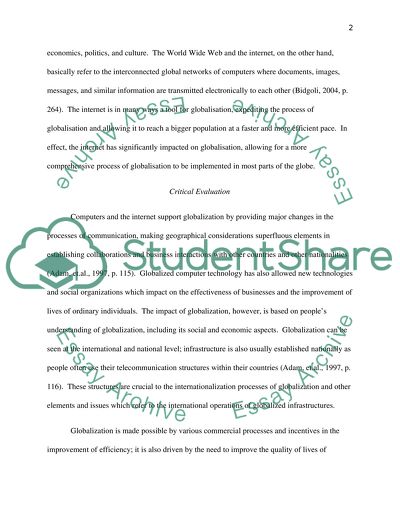Cite this document
(“How World Wide Web and Internet Affected Globalization Essay”, n.d.)
Retrieved de https://studentshare.org/journalism-communication/1448287-write-one-essay-of
Retrieved de https://studentshare.org/journalism-communication/1448287-write-one-essay-of
(How World Wide Web and Internet Affected Globalization Essay)
https://studentshare.org/journalism-communication/1448287-write-one-essay-of.
https://studentshare.org/journalism-communication/1448287-write-one-essay-of.
“How World Wide Web and Internet Affected Globalization Essay”, n.d. https://studentshare.org/journalism-communication/1448287-write-one-essay-of.


